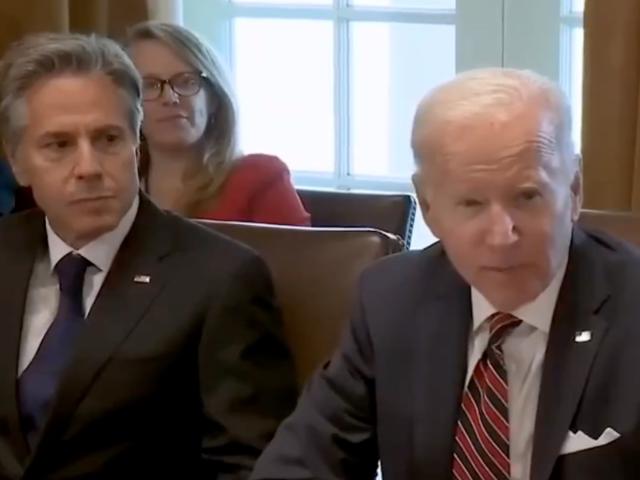In an unprecedented move signaling deepening rifts between Washington and Jerusalem, the U.S. government has abruptly halted a critical ammunition shipment to Israel amid escalating fears of an imminent attack on Rafah, the besieged city currently sheltering over 1.4 million displaced Palestinians.
As the Gaza war rages into its seventh month, Israeli officials have been left scrambling after the Biden administration paused the expected delivery in Tel Aviv, marking a first in U.S.-Israel wartime cooperation. Sources close to the matter, who prefer to remain anonymous, revealed that the sudden decision has sent shockwaves through the Israeli military establishment, with top officials desperately seeking clarity on the interruption.
Biden told Hamas he will guarantee Israeli capitulation. He has reportedly stopped weapons shipments to Israel to force us to surrender.
— Caroline Glick (@CarolineGlick) May 5, 2024
It's the Eve of Yom HaShoah.
What percentage of the American public signed on to Biden's decision to support and facilitate another Holocaust?
Tensions have soared as the U.S. openly criticizes Israel's military tactics in Gaza, particularly regarding the looming invasion of Rafah. The city has become a flashpoint, with the Israeli Defense Forces ordering a mass evacuation of Palestinians to a humanitarian zone along Al-Mawasi beach, indicating a major military operation is on the horizon.
The White House has been vocal in its opposition, with U.S. Secretary of State Antony Blinken expressing reservations about Israel's strategic plans for Rafah, despite acknowledging Israel's efforts to minimize civilian casualties. The administration's concerns are amplified by a misguided international outcry and extensive media coverage of the humanitarian crisis, casting doubt on the proportional use of force and adherence to international law by Israeli forces.
US halts ammunition shipment to Israel amid nationwide protests against the Jewish state on college campuses.
— AF Post (@AFpost) May 5, 2024
This is the first time since Oct. 7 that the US has stopped a weapons shipment to Israel.
Follow: @AFpost pic.twitter.com/t94ptr72HJ
The fact is Israel does not bomb indiscriminately, the IDF is the only army in the world that warns before bombing in order to avoid civilian casualties. The practice has led to one of the lowest combatant to civilian death rates in history according to Colonel John Spencer who chair's West Point's Urban Warfare Department and is considered the foremost expert on Urban warfare in the world. According to Colonel Spencer, Israel has a 1 to 1.5 ratio of combatants killed to civilians, a number that "is better than any battles, past or modern, in urban warfare with even remotely similar context."
To put that in context, Spencer brought up the World War Two battle of Manila where the Allied forces killed 100,000 civilians to overrun 17,000 Japanese troops - a 1 to 6 ratio. More recent, the 2016-2017 battle of Mosul saw 10,000 civilian deaths for 4,000 ISIS members, a 1 to 2.5 ratio.
In the 2016-2017 Battle of Mosul, the biggest urban battles since WWII, the U.S. led Iraqi Security Force killed 10,000 civilians to destroy 4,000 ISIS in the city. That is a 1 to 2.5 combatant to civilian death ratio. In the 1945 Battle of Manila (which did have some variables…
— John Spencer (@SpencerGuard) May 4, 2024
In the backdrop of an election year, the narrative of the war has found its way onto American campuses, sparking significant anti-Israel protests fueled by casualty figures released by Hamas, which have been surprisingly endorsed as credible by parts of the international community. This domestic unrest has put additional pressure on Democrat U.S. politicians who rely on the progressive and youth votes, to reevaluate what has typically been their staunch support for Israel.
On the military front, Israel remains reliant on American aid, with President Biden recently signing a massive $17 billion military aid package for Israel, despite growing calls for restraint. This strategic partnership has seen Israel become a hub of military innovation, developing world-class defense systems like the Iron Dome, David's Sling and Arrow missile systems, which showcased their prowess last month by intercepting over 99% of Iranian projectiles aimed at Israeli territory.
So Israel gives us Iron Dome technology and other weapons technology and we help them out by not giving them the means to protect themselves from the next rocket attack? https://t.co/k5r5s4k2uZ
— Poetrypainter (@poetrypainter) May 5, 2024
Yet, the ground realities remain grim. Reports from Gaza suggest a dire situation with Islamic Jihad and Hamas commandeering humanitarian aid, further exacerbating the plight of the displaced population. The UN and various agencies have voiced severe concerns about the feasibility of evacuating such large numbers amidst the chaos, particularly with continuous threats of ground invasion which is likely why the Israeli evacuation order was limited and affects only 100,000 people.
Amidst these developments, Israel's stance remains firm. Israeli military officials maintain that strategic operations in Gaza, particularly in Rafah, are crucial in combating Hamas, which they assert has embedded its infrastructure within civilian locales. They also allege that senior Hamas leaders and possibly Israeli hostages are located in the city.
Our just war in Gaza continues with the exact same goals: the release of all hostages and the defeat of Hamas.
— ישראל כ”ץ Israel Katz (@Israel_katz) May 6, 2024
Yesterday, we received a reminder from the Nazi terrorist organization Hamas, firing from a civilian population near the Rafah Crossing towards the Kerem Shalom…
As the situation unfolds, the international community watches closely, with many questioning the long-term implications of the U.S.'s sudden pivot in its approach to military support for Israel, a move that could redefine the dynamics of one of the most consequential alliances in modern geopolitics.


